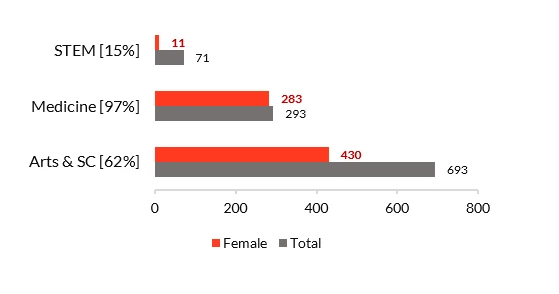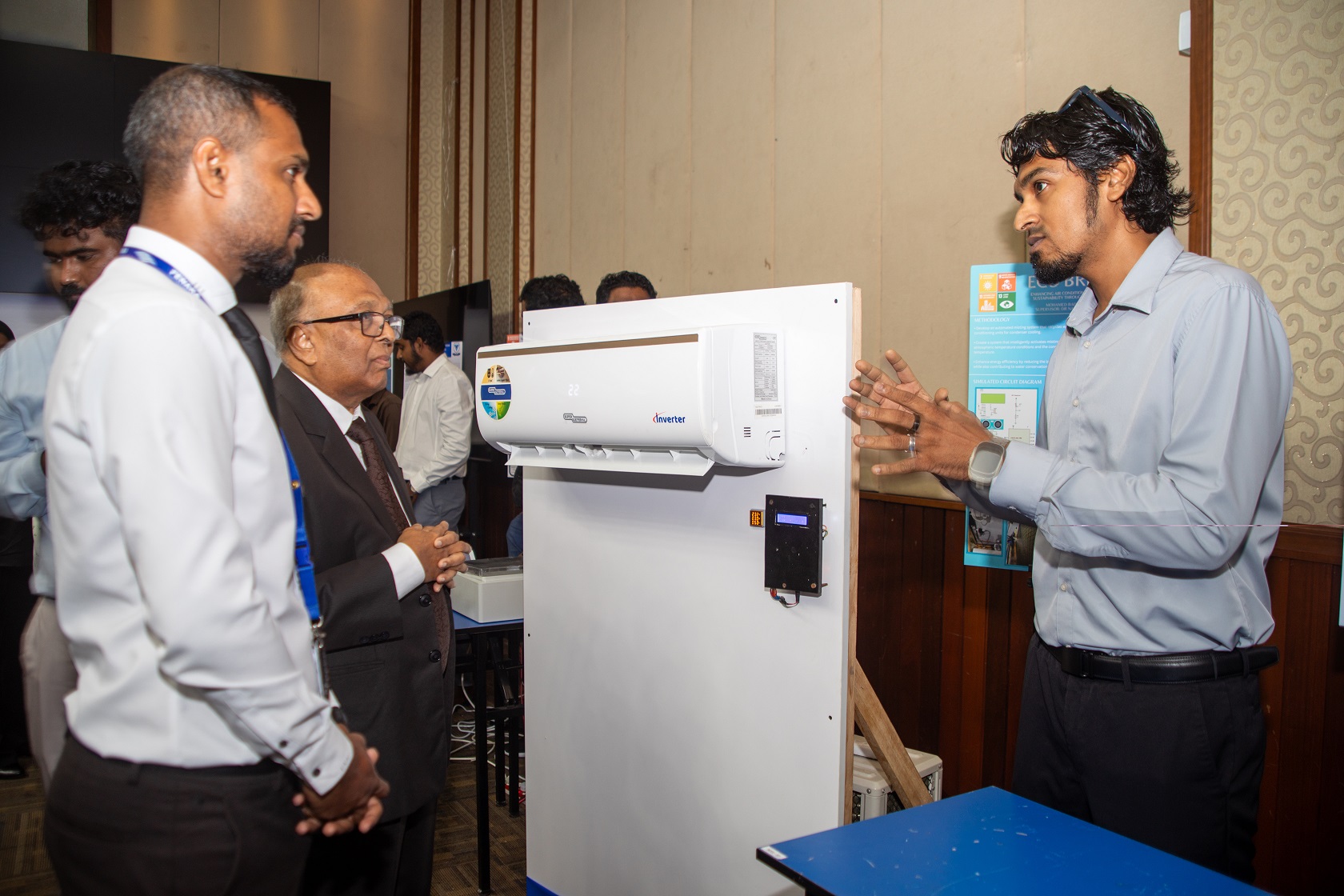The College's systematic tracking of gender-disaggregated enrollment data provides clear insight into the success of female access measures and highlights areas requiring focused intervention. The 2024 graduation data clearly delineates areas of success and areas requiring strategic effort:
High Participation: Female students demonstrate overwhelming participation in the Medicine (Health Sciences) domain, where they account for an exceptional 97%. Similarly, women hold the majority share in Arts & Social Sciences, representing 61% of the students in that domain. These figures affirm the College's success in attracting and enrolling women in socially impactful careers.
Critical Underrepresentation (Focus Area): The analysis reveals a significant disparity in the Science, Technology, Engineering, and Mathematics (STEM) fields. Across these programs, female representation stands critically low at just 15%. Despite this underrepresentation in enrollment, the impact of the College’s targeted efforts is evident: the women's graduation rate in STEM increased from 13% to 15% in 2024, demonstrating a strong upward trend in female persistence and successful completion of these programs.
This statistic makes the STEM subject domain the sole and urgent focus of the College’s targeted encouragement strategies and access schemes for underrepresented subjects, justifying the need for the specific outreach and financial measures detailed in this section.



 Celebrating World Engineering Day 2024: Encouraging Women in Tech: On March 4, 2024, the Faculty of Engineering and Technology celebrated
Celebrating World Engineering Day 2024: Encouraging Women in Tech: On March 4, 2024, the Faculty of Engineering and Technology celebrated 

